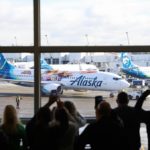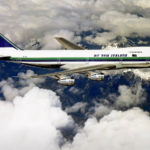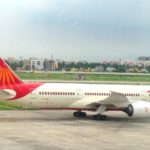
- Korean Air has started facial recognition boarding in Atlanta, United States from this month.
- Customers on flight KE036 in Atlanta will not be required to scan their boarding pass, they will be able to board after a facial recognition scan.
- The technology could increase competence of identification checks and strengthen security and cut boarding time, the airline said.
- Korean Air will provide this service through a technological cooperation with its joint venture partner Delta Air Lines.
- The carrier has already implemented airport facial recognition services in Singapore and Los Angeles. It also plans to start the service in New York JFK in December.
- Korean Air will take measures to stop smoking, including that of e-cigarettes on board. Any flyer caught smoking will be handed over to the police upon landing. The carrier is making its cabin crew aware of the various kinds of e-cigarettes and in-flight e-cigarette regulations, and training them to take action against any offender.
PRESS RELEASE
Korean Air will implement facial recognition boarding in Atlanta, U.S., from November 1. Passengers taking flight KE036 in Atlanta will be able to board after a facial recognition scan without scanning their boarding pass.
Facial recognition boarding is made possible with technology that takes a photograph of the passenger’s face and automatically checks whether it matches the passenger’s passport and boarding pass information. The service is expected to enhance efficiency of identification checks and strengthen security while reducing boarding time for passengers.
Korean Air is currently using airport facial recognition services in Singapore and Los Angeles, and will begin to provide facial recognition boarding services in Atlanta from November through a technological cooperation with its joint venture partner Delta Air Lines. Korean Air will also expand facial recognition boarding to New York (JFK) in December. Korean Air is also preparing for the installation of facial recognition services in line with the Incheon International Airport Corporation’s Smart Airport Plan.
Meanwhile, Korean Air has expanded self-check-in kiosk services in Incheon to allow for seat assignment and self-tagging of baggage. Using these kiosks is expected to reduce a passenger’s check-in time by more than 30 percent.
In line with global trends and changing technology, Korean Air plans to continue to expand and develop smart air travel services to enhance the passenger experience.




